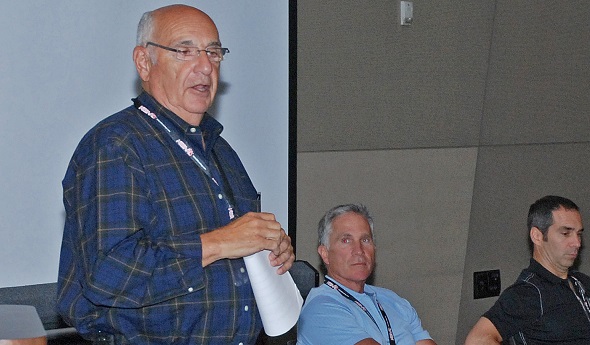
Beyond Fairness
April 11, 2017
One of the lessons I learned decades ago when I was employed at the National Federation of State High School Associations (NFHS) is that sometimes the playing rules are not fair.
The NFHS is the publisher of playing rules for most high school sports, and its rule books govern competition for most of the contests for most of the high schools in the U.S.
But the NFHS doesn’t publish the most fair rules. On purpose.
The rules for the high school level attempt to do much more than promote competitive equity, or a balance between offense and defense; they also attempt – without compromising participant health and safety – to simplify the administration of the game.
Unlike Major League Baseball, where umpires officiate full-time, and professional basketball, football and ice hockey where they officiate nearly full-time, the officials at the high school level are part-timers. They have other jobs. This is their avocation, not their vocation.
So the NFHS develops and publishes rules that minimize exceptions to the rules. In football, for example, there are fewer variables for determining the spot where penalties are enforced.
At the high school level, the rule makers intend that the rules be – for players, coaches and officials alike – quicker to learn, simpler to remember, and easier to apply during the heat of contests.

West Michigan Mourns Longtime Mentor
June 25, 2019
By Geoff Kimmerly
Second Half editor
As quickly as June has come to an end, summer soon will give way to another highly-anticipated football season in the Grand Rapids area – but also one that undoubtedly will feel like someone is missing for the many officials who learned from Carl Paganelli.
The longtime high school, college and professional official died May 21 at age 82 after fighting cancer, and was laid to rest May 29 in Wyoming, near Grand Rapids, where he lived most of his life.
Paganelli’s most high-profile on-field work likely came during his time in the former USFL, World Football League and Arena Football League. More of his 58 years in the game came as supervisor of officials in the Mid-American Conference, Arena League and during the initial campaign of the XFL. His three sons Carl Jr., Perry and Dino all have gone on to officiate in NFL Super Bowls.
Those impressive notes were mentioned most when Carl Sr. died. But his influence on the high school game was similarly substantial and should continue through those he mentored during nearly 60 years as part of the West Michigan Officials Association – which referred to him as “one of the founding fathers of officiating in West Michigan” in announcing his passing.
Paganelli was an MHSAA registered official for 36 football seasons through fall 1998, and also for 24 basketball seasons through winter 1987-88. Also during the 1990s, Caledonia native Mark Uyl began a multi-sport officiating career that would carry him in part to two baseball College World Series. He got to know Paganelli well through wearing the stripes and while also serving as athletic director at his alma mater and then Middleville Thornapple Kellogg on the way to becoming an MHSAA assistant and now executive director.
“Carl was one of the greatest officiating mentors that there’s ever been, and what made Carl most unique in that area was the fact he would go out and watch a junior high game Thursday in Grand Rapids, see a new official, and give that official the same time and care and detail that he would when he was supervisor of officials for the MAC or evaluating NFL officials,” Uyl said.
“To him, an official was an official. He was there, and he wanted to help you get better.”
As noted in his obituary, Paganelli was considered the “godfather of Grand Rapids area officials” and has been credited by numerous NFL officials for his guidance over the years. He was inducted into the Arena Football Hall of Fame and also into the Grand Rapids Sports Hall of Fame twice – solo in 2008 and with his three sons as the “Paganelli Team” in 2018.
Carl Sr. with his sons was among presenters when more than 1,200 officials from across the state poured into Grand Rapids during July 2013 for the first Officiate Michigan Day. His local footprint also includes a substantial presence at Grand Rapids Community College, where the foyer of the Gerald R. Ford Fieldhouse is named after the family and a scholarship in their name is presented annually to a student-athlete. Paganelli Sr. had attended Grand Rapids Junior College in 1954 and 1955. He also served in the U.S. Navy during the Korean War, and later sat on the Wyoming City Council.
PHOTO: Carl Paganelli speaks to an audience during Officiate Michigan Day in 2013 as part of a roundtable with his three sons.

